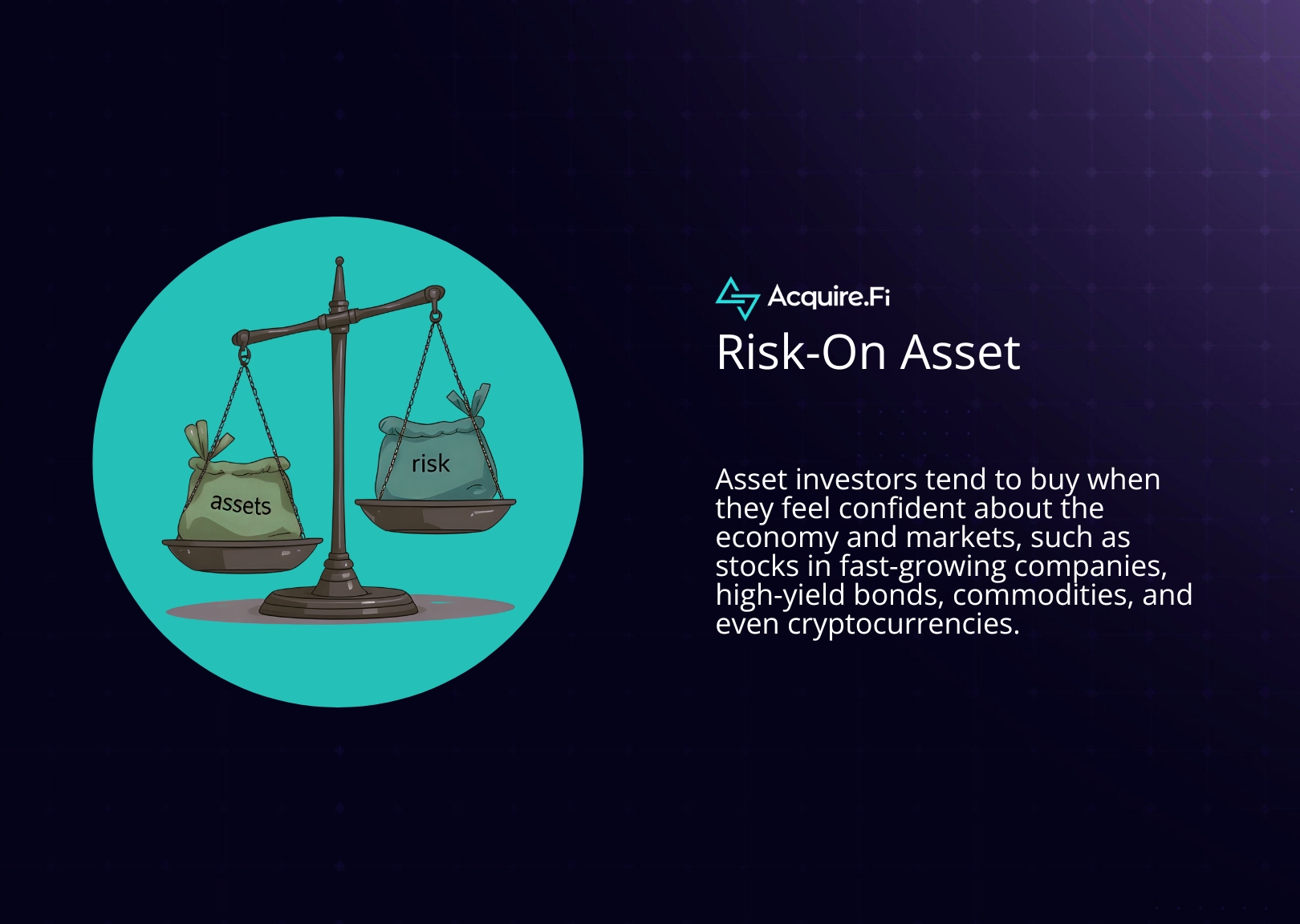Preparing for Investment Banking Interview
Investment banking interviews are notoriously challenging, but with the right preparation and strategy, you can stand out from the crowd and land your dream job. Whether you're a recent graduate, a career changer, or simply looking to advance your career, there are several key steps you need to take to prepare for the interview process.
Understanding the Investment Banking Industry
Before you even start applying for investment banking roles, it's important to have a solid understanding of the industry as a whole. Investment banking is a complex and competitive field that involves mergers and acquisitions, initial public offerings (IPOs), debt and equity financing, and various other financial transactions.
Investment banks play a critical role in the global economy by facilitating the flow of capital between investors and businesses. They help businesses raise capital by issuing stocks and bonds, and they also provide financial advice to companies looking to grow or expand their operations. Investment bankers work with a wide range of clients, including corporations, governments, and high-net-worth individuals.
Key Players in Investment Banking
Some of the key players in the investment banking industry include large multinational banks such as Goldman Sachs, Morgan Stanley, and J.P. Morgan. These banks have a global presence and offer a wide range of financial services to clients around the world. Additionally, boutique investment banks that specialize in specific industries or regions can also be major players in the market. These smaller firms often have a more specialized focus and can provide more tailored services to clients in niche industries.
Services Offered by Investment Banks
Investment banks offer a wide range of financial services to their clients. One of the most important services they provide is financial advice. Investment bankers work closely with clients to develop strategies for raising capital, acquiring other businesses, and navigating complex financial transactions. They also provide underwriting services, which involves helping companies issue stocks and bonds to raise capital.
Market making is another important service offered by investment banks. Market makers help to ensure that financial markets are liquid by buying and selling securities on behalf of clients. This helps to ensure that investors can buy and sell securities quickly and easily, which is essential for a well-functioning financial system.
Trading is another key service offered by investment banks. Traders buy and sell securities on behalf of clients, and they use their expertise to identify profitable opportunities in the market. Investment banks also provide research services, which involves analyzing financial data and providing insights into market trends and investment opportunities.
Recent Trends and Developments
As with any industry, the investment banking field is constantly evolving, and it's important to stay up to date with the latest trends and developments. One of the most significant trends in recent years has been the rise of fintech startups. These companies use technology to disrupt traditional financial services and offer new and innovative ways for individuals and businesses to access capital.
Another trend in the investment banking industry is the increased focus on sustainable investing. Many investors are now looking for companies that prioritize environmental, social, and governance (ESG) issues, and investment banks are responding by offering ESG-focused investment products and services.
Finally, new regulations aimed at improving transparency and reducing risk have also had a significant impact on the investment banking industry. These regulations have increased the reporting requirements for investment banks and have led to changes in the way that financial transactions are structured and executed.
Pre-Interview Research and Preparation
Investment banking is a highly competitive field, and the interview process can be rigorous. To ensure that you stand out from other candidates, it's important to do your research and practice your interview skills. Here are some tips to help you prepare:
Researching the Company and Industry
Before your interview, it's essential to research the company and industry thoroughly. This will help you understand the company's culture, values, and mission, as well as the current trends and challenges facing the industry. You can start by reading the company's website, annual reports, and press releases, as well as industry publications and news sources.
It's also a good idea to research the company's competitors and key players in the industry. This will give you a broader understanding of the industry landscape and help you identify potential opportunities and challenges.
Familiarizing Yourself with Common Interview Questions
During an investment banking interview, you can expect to be asked a wide range of questions, from technical questions about financial modeling and valuation to behavioral questions about teamwork and leadership. To prepare for these questions, it's important to familiarize yourself with common interview questions and practice your responses in advance.
You can find sample questions online or through networking with current or former investment bankers. You can also practice with a friend or mentor who can provide feedback on your responses and help you improve your interview skills.
Preparing Your Personal Pitch
Your personal pitch is your chance to showcase your skills, experience, and passion for the industry. This should be a concise, compelling statement that summarizes your strengths and highlights why you're the best candidate for the job.
To prepare your personal pitch, start by identifying your unique selling points, such as your academic achievements, relevant work experience, or extracurricular activities. Then, craft a narrative that ties these points together and demonstrates your passion for the industry.
Practice your pitch until you can deliver it confidently and without hesitation. You should also be prepared to tailor your pitch to the specific company and role you're interviewing for, highlighting the skills and experiences that are most relevant to the job.
By doing your research and practicing your interview skills, you can increase your chances of success in the investment banking industry. Good luck!
Technical Knowledge and Skills
Investment banking roles require a high level of technical knowledge and skills, including financial statement analysis, valuation techniques, and M&A expertise. These skills are essential for investment bankers to provide sound financial advice to their clients. In order to succeed in an investment banking interview, it's important to have a solid grasp of these concepts and be able to apply them in real-world scenarios.
Financial Statement Analysis
Financial statement analysis involves examining a company's financial statements to identify trends, strengths, and weaknesses. This includes analyzing income statements, balance sheets, and cash flow statements to gain insights into the company's financial health and performance. Investment bankers use financial statement analysis to evaluate a company's profitability, liquidity, and solvency. They also use this analysis to identify potential risks and opportunities for growth.
For example, if an investment banker is analyzing a company's income statement and sees that the company's revenue has been declining over the past few years, they may recommend that the company focus on expanding into new markets or diversifying their product offerings to increase revenue.
Valuation Techniques
Valuation techniques involve determining the value of a company, asset, or investment based on various factors such as earnings, growth potential, and market trends. There are several different valuation techniques, including discounted cash flow analysis, comparable company analysis, and precedent transactions analysis. Investment bankers use these techniques to determine the fair market value of a company or asset and to provide guidance to their clients on pricing and negotiation strategies.
For example, if an investment banker is working on a merger between two companies, they may use a comparable company analysis to determine the valuation of the target company. By comparing the target company's financial metrics to those of similar companies in the industry, the investment banker can determine a fair market value for the target company.
Mergers and Acquisitions
Mergers and acquisitions, or M&A, involve the buying and selling of companies or assets. This is a key area of expertise for investment bankers, and involves in-depth knowledge of legal, financial, and strategic considerations. Investment bankers play a crucial role in M&A transactions, providing guidance to their clients on deal structuring, negotiation, and financing.
For example, if a company is considering acquiring another company, an investment banker may advise the company on the best way to structure the deal to minimize risk and maximize value. They may also provide guidance on financing options, such as issuing debt or equity, to fund the acquisition.
Leveraged Buyouts
Leveraged buyouts, or LBOs, involve purchasing a company using a significant amount of debt. This is another area of expertise for investment bankers, and requires a thorough understanding of financing structures and risk management strategies. Investment bankers work with private equity firms and other investors to structure LBOs and to identify potential acquisition targets.
For example, if a private equity firm is considering an LBO of a company, an investment banker may advise the firm on the best way to structure the financing to minimize risk and maximize returns. They may also help the firm identify potential acquisition targets and provide guidance on negotiating the deal.
Overall, investment banking requires a combination of technical knowledge, analytical skills, and strategic thinking. Investment bankers must be able to analyze complex financial data, identify trends and opportunities, and provide sound financial advice to their clients. By mastering these skills, investment bankers can help their clients achieve their financial goals and succeed in the competitive world of finance.
Behavioral and Fit Questions
In addition to technical knowledge, investment banking recruiters will also be looking for candidates who are a good fit for the company culture and can demonstrate strong leadership and teamwork skills. This means being able to answer behavioral and fit questions confidently and authentically.
Demonstrating Your Interest in Investment Banking
One of the most important aspects of succeeding in an investment banking interview is demonstrating your genuine interest and passion for the industry. This means researching the company and industry thoroughly, being able to articulate your motivation for pursuing a career in finance, and highlighting your relevant experience and skills.
Investment banking is a highly competitive and dynamic industry that requires a deep understanding of financial markets and transactions. It is important to show that you have a strong interest in finance and economics, and that you are up-to-date with the latest trends and developments in the industry. You can demonstrate your interest by sharing relevant news articles, discussing industry events or conferences you have attended, or highlighting any finance-related extracurricular activities you have participated in.
Showcasing Your Leadership and Teamwork Skills
Investment banking roles require strong leadership and teamwork skills, as you will be working on complex projects with cross-functional teams and interacting with clients and stakeholders at all levels. Be sure to showcase your leadership and teamwork skills through examples from your professional and personal experience.
Leadership can be demonstrated through examples of how you have taken charge of a project or initiative, mentored or coached others, or led a team to achieve a common goal. Teamwork can be demonstrated through examples of how you have collaborated with others to solve a problem, overcome a challenge, or achieve a shared objective. It is important to show that you are a team player who can work effectively with others, while also being able to take initiative and lead when necessary.
Handling Challenging Situations and Ethical Dilemmas
Another important aspect of demonstrating your fit for an investment banking role is being able to handle challenging situations and ethical dilemmas. This means being able to think critically, communicate effectively, and make sound decisions that align with the company's values and mission.
Investment banking can be a high-pressure environment where you may be faced with difficult decisions or ethical dilemmas. It is important to show that you can remain calm under pressure, think logically and analytically, and communicate effectively with all stakeholders. You can demonstrate your ability to handle challenging situations by sharing examples of how you have dealt with difficult clients, managed a crisis, or resolved a conflict in a professional setting.
Furthermore, investment banking firms have a strong focus on ethical behavior and integrity. It is important to show that you share these values and can make decisions that align with the company's mission and values. You can demonstrate your commitment to ethical behavior by sharing examples of how you have acted with integrity in the past, or by discussing your approach to handling ethical dilemmas.
Mastering the Case Study and Deal Discussion
Investment banking interviews often include case study and deal discussion components, which involve analyzing a specific company or transaction and presenting your findings and recommendations to the interviewer. This requires a high level of critical thinking, analytical skills, and communication abilities.
Investment banking is a highly competitive field, and having a thorough understanding of case studies and deal discussions is crucial to succeeding in the industry. In this article, we will explore some tips and tricks to help you master the case study and deal discussion components of investment banking interviews.
Analyzing a Case Study
When analyzing a case study, it's important to take a structured and methodical approach. This involves identifying key issues and questions, gathering relevant data and information, and developing a clear, logical framework for analyzing the problem.
One way to approach a case study is to break it down into smaller, more manageable parts. Start by identifying the main problem or issue that the company is facing. Next, gather all of the relevant data and information that you can find, including financial statements, market research, and industry reports. Once you have all of the necessary information, develop a clear framework for analyzing the problem. This might involve creating a SWOT analysis, identifying the company's strengths, weaknesses, opportunities, and threats.
Remember, when analyzing a case study, it's important to think critically and creatively. Don't be afraid to question assumptions or challenge conventional wisdom. The interviewer is looking for your ability to think outside the box and come up with innovative solutions to complex problems.
Presenting Your Findings and Recommendations
Once you've analyzed the case study, it's important to be able to present your findings and recommendations in a clear and concise manner. This means using data and evidence to support your conclusions, being able to communicate complex information effectively, and demonstrating strong presentation skills.
When presenting your findings, it's important to be organized and structured. Start by summarizing the main problem or issue that the company is facing. Next, present your analysis of the problem, including any relevant data or evidence that you have gathered. Finally, make your recommendations for how the company should proceed, based on your analysis.
Remember, when presenting your findings, it's important to be confident and assertive. The interviewer is looking for someone who can make a compelling case and back it up with solid evidence.
Discussing Past Deals and Transactions
Investment banking interviews may also involve discussing past deals and transactions that you have been involved in. Be sure to come prepared with examples of your work, including specific details on the deal structure, your role and responsibilities, and the outcome of the transaction.
When discussing past deals, it's important to be able to communicate your role and responsibilities clearly. This might involve explaining how you contributed to the deal, what challenges you faced, and how you overcame them. It's also important to be able to explain the outcome of the transaction, including any lessons learned or areas for improvement.
Remember, when discussing past deals, it's important to be humble and honest. Don't be afraid to admit mistakes or areas where you could have improved. The interviewer is looking for someone who can learn from their experiences and grow as a professional.
By following these tips and tricks, you can master the case study and deal discussion components of investment banking interviews, and set yourself up for success in the industry.
Networking and Building Connections
Preparing for an investment banking interview can be a daunting task, but one of the most important aspects of this process is networking and building connections. Investment banking is a highly competitive industry, and having a strong network can give you a significant advantage over other candidates. In this article, we will discuss some tips and strategies for leveraging your alumni and professional networks, attending industry events and conferences, and utilizing social media and online resources to expand your knowledge and connect with potential employers.
Leveraging Alumni and Professional Networks
Your alumni and professional networks can be an invaluable resource when preparing for an investment banking interview. These networks can provide you with insights into the industry, as well as valuable connections and referrals. To leverage your networks effectively, you should consider reaching out to former classmates and colleagues for advice and guidance. These individuals may be able to provide you with valuable insights into the interview process and the industry as a whole. Additionally, attending alumni events and networking opportunities can be a great way to build relationships with professionals in the industry.
Attending Industry Events and Conferences
Attending industry events and conferences is another great way to expand your knowledge and connect with potential employers. Investment banks often attend career fairs, conferences, and other events to recruit new talent. Attending these events can give you the opportunity to meet with recruiters and other industry professionals, learn about different investment banking firms, and get a sense of the industry as a whole. To make the most of these events, it's important to be proactive in reaching out to recruiters and other industry professionals. Come prepared with questions and be ready to engage in meaningful conversations.
Utilizing Social Media and Online Resources
Social media and online resources can also be a valuable tool when preparing for an investment banking interview. LinkedIn and other professional networking sites can be used to connect with recruiters and other industry professionals. By building a strong online presence, you can showcase your skills and experience to potential employers. Additionally, researching companies and industry trends through online resources such as blogs, forums, and industry publications can help you stay up-to-date on the latest developments in the industry. By staying informed, you can demonstrate your knowledge and passion for the industry during the interview process.
Final Tips and Strategies for Success
Preparing for an investment banking interview can be a challenging and time-consuming process, but with the right tips and strategies, you can give yourself the best possible chance of success. Here are some final tips and strategies to keep in mind:
Dressing for Success and Body Language
During your interview, you want to make a positive impression with your appearance and body language. Dress in professional attire that is appropriate for the company culture, and practice good posture, eye contact, and other nonverbal cues that convey confidence and professionalism.
Asking Thoughtful Questions
Asking thoughtful and insightful questions is an important way to demonstrate your interest and engagement in the industry. Be sure to come prepared with questions that show you've done your research and are genuinely interested in the company and role.
Following Up After the Interview
Finally, following up after the interview is a crucial step in the process. Send a personalized thank you email to your interviewer(s), reiterating your interest and enthusiasm for the role and company. This can help keep you top of mind and demonstrate your professionalism and attention to detail.
By following these tips and strategies, you can prepare effectively for your investment banking interview and stand out from the competition. Remember, success in an investment banking interview comes down to a combination of technical knowledge, cultural fit, and personal passion and drive. Good luck!















.webp)